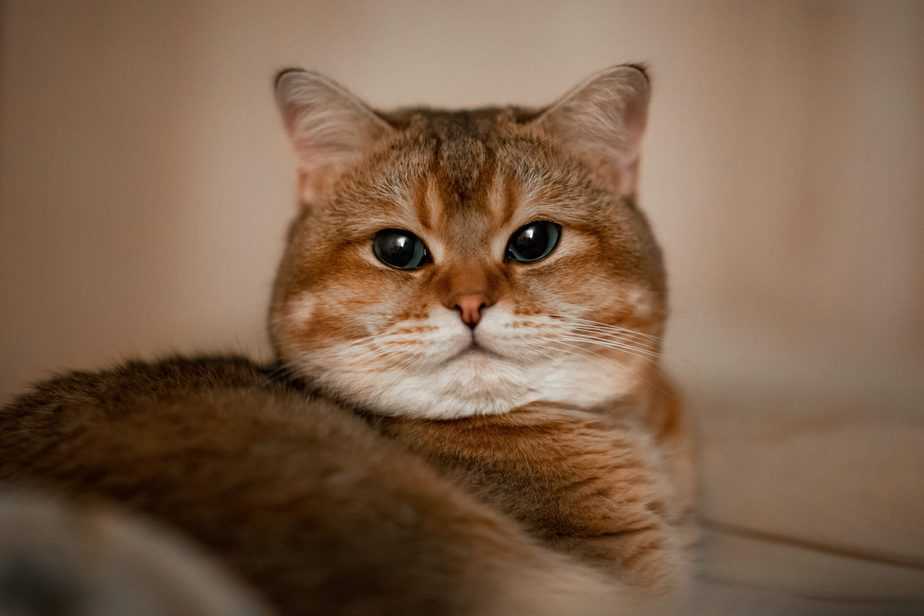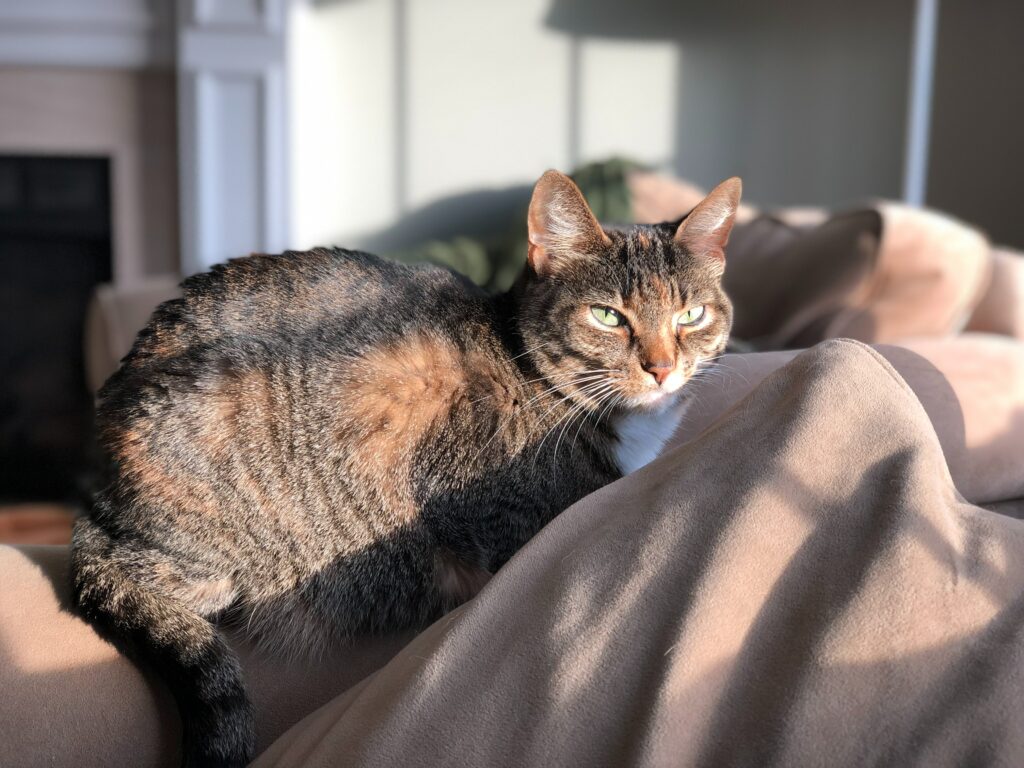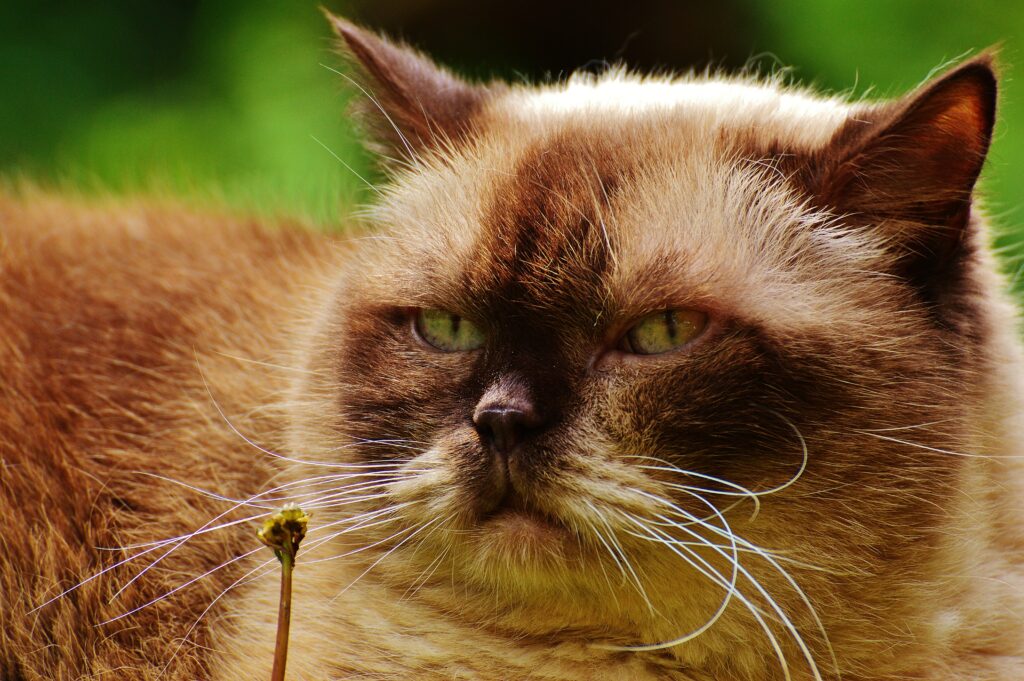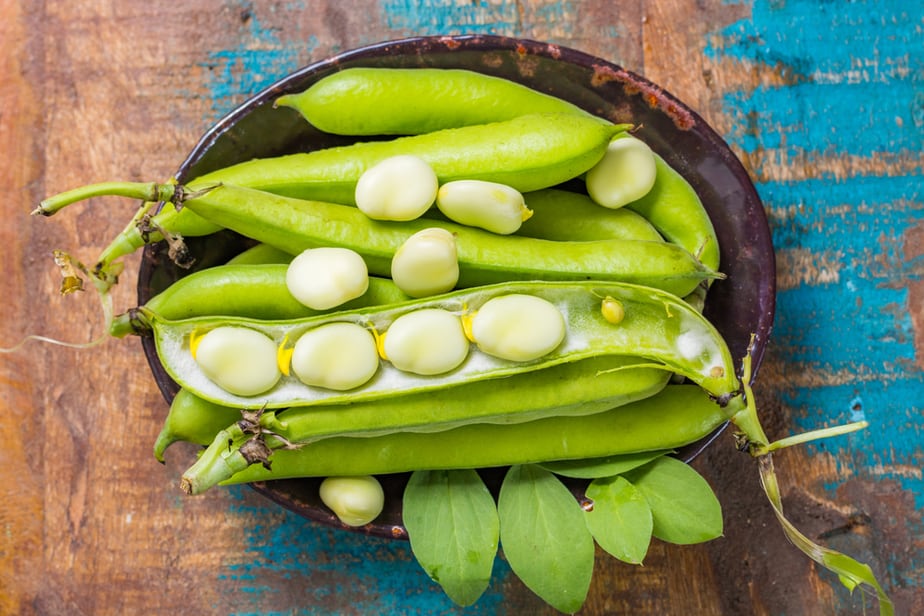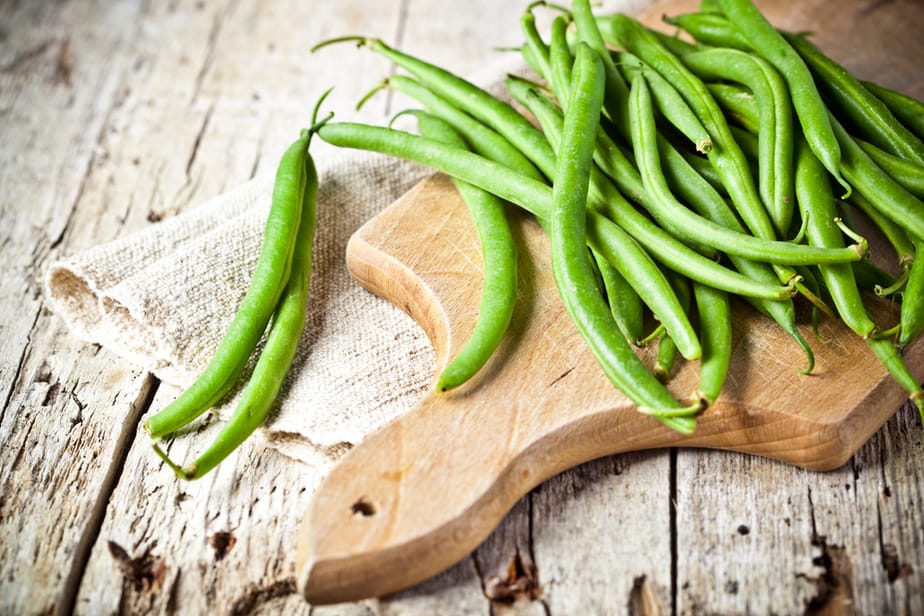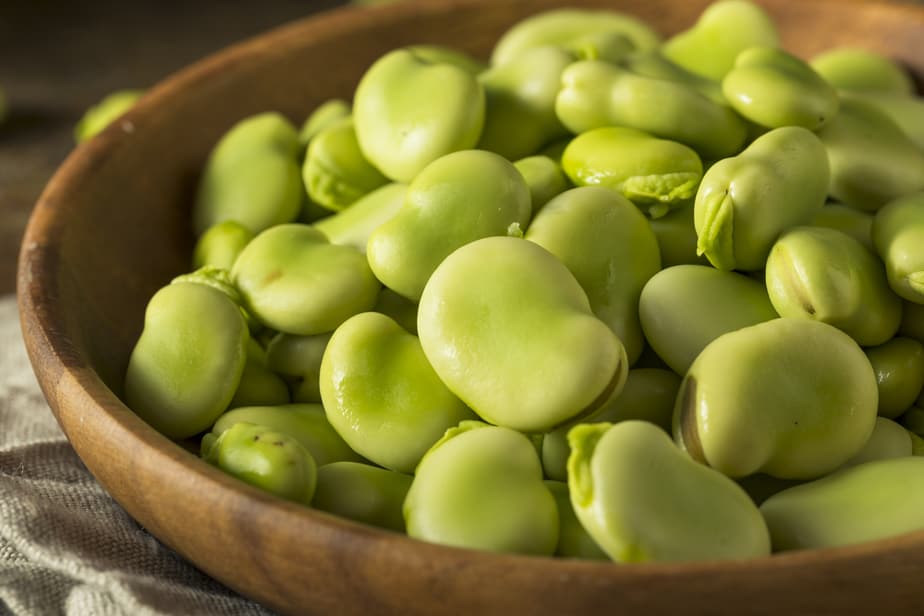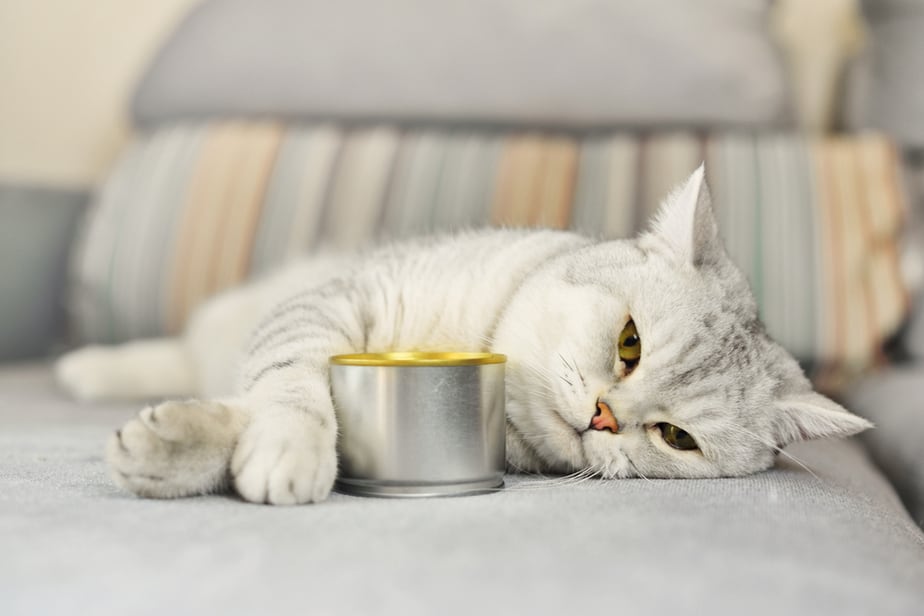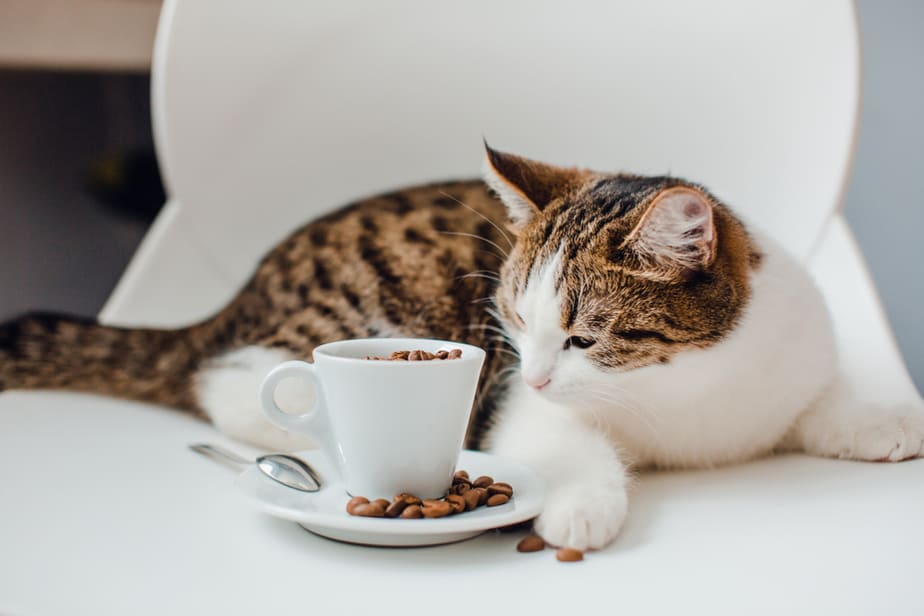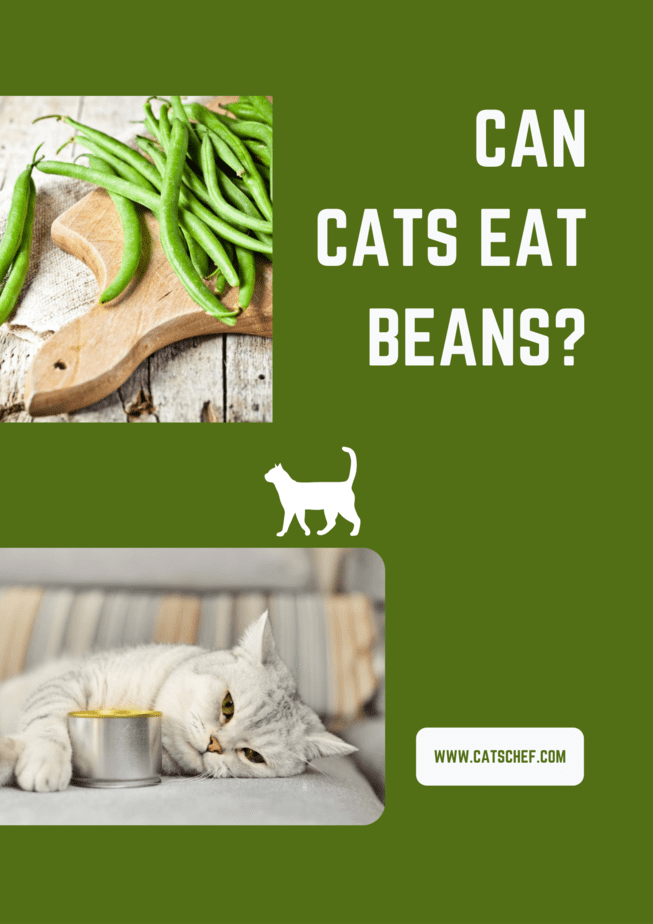📖 Table of Content:
Can cats eat beans? This question has inevitably popped up any time you’ve had some leftovers and your cat was spying on them.
What could go wrong with this, otherwise healthy, food item? It’s a vegetable and apparently, those are good for you. That’s why you assume that your feline can safely eat it.
Well, let me tell you that it’s okay for you to worry about your pet eating beans because not all human foods are good for cats.
We know that beans can be found literally everywhere! Not to mention that there are different types, shapes, flavors, and colors. They mix well with anything, just like butter! Let’s say cats can eat beans, but what kind?
There are just too many to choose from and different kinds offer different nutritional values. Some of the beans that are safe for your cat to eat are lima, string, and fava beans.
Health benefits of beans
Beans offer a variety of health benefits for both humans and cats. But be aware that these shouldn’t be your pet’s main choice of diet, nor should they replace the meat she needs every day.
It doesn’t mean that she can’t have them occasionally. Beans can make a great snack for felines, especially if you want to incorporate some greens into their diet. Next to beans, asparagus can make a great treat for your pet, from time to time.
1. Packed with protein
Proteins are the most essential nutrients for cats. They are crucial for your pet’s growth, and if she doesn’t get enough, she’ll suffer the consequences.
For your kitty companion, animal-derived protein is the best option. Other, plant-based proteins may be beneficial to your cat’s health, but they fall short of animal proteins in terms of being effectively absorbed in the cat’s body.
Cats’ digestive systems aren’t designed to break down plant components, so they struggle to absorb all of the nutrients from plant-based proteins. Animal proteins, on the other hand, provide fatty acids, amino acids, and vitamins not found in plant proteins.
Beans are a terrific protein-rich snack that you may include in your pet’s diet. So, cats can eat beans, but unfortunately, these can’t satisfy her dietary protein needs.
2. Fiber content
These green snacks are loaded with fiber, which helps in your cat’s digestion and can also prevent diarrhea. Cats require daily amounts of this nutrient to help regulate food in their digestive tracts.
However, excess amounts of fiber can be harmful to your pet. This isn’t a reason for concern but could cause some digestive issues with your furkid. Too much of this nutrient could have an adverse effect on your feline.
While moderate amounts of fiber can help with diarrhea, excessive amounts could cause constipation. So, make sure you don’t overdo it with beans, and that way, cause more harm than good.
3. Health supplements
Beans are also high in calcium and vitamin K. Felines require these nutrients on a regular basis in order to maintain their strength and wellbeing. They’re especially crucial for her bones and teeth since they help prevent fractures.
If you have an energetic furkid who spends her days jumping and climbing trees, iron health supplements are a must. Red blood cells, which transfer oxygen from the lungs to all other cells in a feline’s body, require iron for proper function.
Anemia, a disorder defined by fatigue, weakness, and lightheadedness, might develop if this supplement is not included in their diet.
Beans are abundant in vitamin C, which helps maintain the immune system, and is one of the reasons why you should occasionally offer them to your furbaby.
Vitamin A is another nutrient commonly found in beans. This vitamin deficiency could lead to vision problems. We want to prevent these issues as much as possible because cats are nocturnal animals.
Vitamin E, an antioxidant, is another beneficial ingredient found in these little veggies. It has a tight relationship with vitamin K as they play a crucial role in blood clot prevention. Potassium, magnesium, phosphorus, zinc, and thiamine are some of the other nutritional components also present in beans.
What about raw beans?
You should never feed your cat raw beans. She probably won’t like it anyway, but raw beans carry some health risks. Cats who consume raw beans on a regular basis are susceptible to phytohemagglutinin poisoning.
It can be triggered by a few raw beans, regardless of whether they are organic or not. Nausea, severe vomiting, and diarrhea are the most obvious symptoms of this poisoning. Do not ignore these, and take your cat to the vet immediately.
Besides, raw beans can transmit E. coli, which is one of the most important reasons cats should not consume them. E. coli is a bacteria that has been linked to many other raw foods like crab meat. While cooked beans are perfectly safe for cats, it’s best she stays away from the raw ones.
Can cats eat lima beans?
Yes, cats can eat lima beans. But, just as with any other beans, they should be fed in moderation. Soybeans, peanuts, kidney beans, and lentils are all members of the wider bean and legume family, as are lima beans.
Just as it’s mentioned above, beans are a great source of protein. The same goes for lima beans, meaning that they’re safe for your pet to eat as long as they’re cooked and served plain.
1. Healthy fats
Lima beans are low in fat and have a creamy texture. They don’t contain cholesterol because they are plant food. They also don’t contain trans fats because they aren’t processed.
The majority of the fats in lima beans are polyunsaturated fats, which is a very healthy choice for your pet. Frequently choosing these over saturated fats reduces the risk of cardiovascular disease.
Saturated fats, found mostly in creamy foods, can increase the cholesterol level in both humans and felines.
This can lead to the development of certain heart diseases and increase the risk of heart stroke. Besides, these fats can make your pet overweight, which could result in a number of health issues. Added pressure to the joints is often all that’s needed for arthritis development in cats.
2. Vitamins and minerals found in lima beans
Lima beans contain iron, which can help prevent iron deficiency anemia. This is a condition that is caused by a lack of iron in a cat’s diet.
Anemia causes weariness, shortness of breath, and potentially organ damage in felines who don’t have enough healthy red blood cells to deliver oxygen throughout their bodies.
Vitamin B1, commonly known as thiamine, is an essential vitamin for cats, meaning it must be included in their food for them to stay healthy. Thiamine is required for proper brain function, as well as other, high-energy organs because it is involved in glucose metabolism.
Next to these, copper, manganese, and folate are all abundant in lima beans. These vitamins and minerals are required for various bodily functions, including the synthesis of collagen, bone, and connective tissue.
Also, these help in iron absorption, red blood cell development and maturation, antioxidant activity, and hair pigment development.
Can cats eat raw lima beans?
Something to be careful about are raw lima beans. Uncooked beans are hard to digest, and your cat probably wouldn’t be interested in them.
Furthermore, raw lima beans have large levels of phytohemagglutinin, a poisonous toxin. Lima beans must be cooked for at least 10 minutes to eliminate this poison.
If your cat eats just a few raw lima beans, phytohemagglutinin poisoning can set in about three hours, causing vomiting and diarrhea.
Can cats eat string beans (aka green beans)?
String beans are perfectly safe for cat consumption. The name may not be familiar as it’s quite outdated. However, green beans do ring a bell, right?
These include a variety of healthy elements. If you must feed legumes to your cat, do it just once or twice a week. While she can eat string beans, they should not be your kitto’s primary source of nutrition.
Green beans are an excellent immune system booster for your cat. They are abundant in vitamin C, which helps to maintain the immune system. This legume can help your pet meet her vitamin C needs on a daily basis.
Vitamin A is also found in green beans. We already know how important this supplement is for your nocturnal roommate.
String or green beans should be cooked without any added spices. Cooked legumes, such as chickpeas and green beans, are easier for cats to chew, swallow, and digest.
When cooking beans, we usually use spices like ginger, turmeric, and garlic. While turmeric is beneficial to cats, garlic is extremely harmful to them, so to be sure, stay away from both.
Green beans also have a high carbohydrate content. Carbohydrates, like fiber, aren’t necessary for your cat’s health and could cause issues if consumed in excess.
Keep an eye out for gastrointestinal symptoms such as abdominal pain, gas, bloating, and diarrhea. Make an appointment with your veterinarian right away if any of these occur.
Can cats eat fava beans?
You may have heard of these beans and that they’re the main cause of favism. It is a hereditary disorder caused by a defect in an enzyme related to glucose breakdown. However, there’s no need to worry because this disease doesn’t affect your furry friends.
Although fava beans contain toxic chemicals called leonine and vicine lectins, eating them in small amounts can’t cause major sickness. Fava beans can be boiled in water or puréed, making them more convenient and safe for cats.
However, before boiling you should remove the stems, dirt, and any rotting leaves from the fava beans as these can’t be digested by cats. These might also become lodged in their stomachs and cause vomiting and diarrhea.
On the other hand, fava beans contain a variety of nutrients. Some of these include folate, thiamine, selenium, calcium, copper, potassium, and many more.
In conjunction with calcium and zinc, manganese and copper help to prevent bone loss. Fava beans contain a kind of iron that is more easily absorbed when combined with vitamin C from foods like bell peppers.
They’re particularly high in chemicals that may boost antioxidant activity. Antioxidants are important for your cat’s immune protection because they battle free radicals, which can damage cells and cause disease.
These greens are also high in fiber. As a result, protein-containing and fiber-rich fava beans in your cat’s diet may aid in weight loss. Chubby cats are cute, but it’s necessary to maintain a healthy weight for them to stay happy and safe.
What about canned beans?
Canned beans are often an easy solution for many people. They come cooked, seasoned, and ready to be devoured.
However, these may not be the perfect match for your kitten. The amount of salt and other spices found in canned beans is alarming.
Salt is a necessary mineral for your cat, but it can be hazardous to them. Sodium poisoning can be caused by just one teaspoon of salt.
Because canned beans contain a lot of salt, you should keep it out of your cat’s reach. While a lick or two is usually not a cause for concern, prolonged consumption can have an unfavorable impact.
If your cat eats too much of these canned beans, she may develop a number of symptoms. Vomiting, diarrhea, increased thirst, and urination are all common symptoms of salt poisoning. Inappetence and tiredness are two further clinical indications to be aware of.
Another reason for concern is the preservatives. They are found in almost every canned food to, well, preserve the content. They enable a longer shelf life and freshness for any product, as well as enhance the flavor and color of the food.
However, preservatives can be detrimental to your pet’s health in the long run. They can cause thiamine deficiency in felines, which may lead to serious neurological problems. If left untreated, this condition can be fatal.
Beans as choking hazards
Although this doesn’t happen often, you should be aware of the risks. Cats can eat beans, but only cooked ones. Raw beans are a choking hazard. If your pet’s a guzzler, she may be at a higher risk of getting food stuck in her throat.
Beans will begin to absorb moisture from your cat’s gut in their raw form, which may or may not soften them before they create a serious obstruction. While cats can eat cooked beans safely, it’s best to avoid raw ones.
Can cats eat coffee beans?
People often get confused with the term beans. While lima, string, and fava beans are members of the legume family, coffee beans are not.
These belong to the seed family. Because of this confusion, people may think coffee beans are safe for felines, just like other beans.
However, this is not the case. Not only are they not safe for cats, but coffee beans can be poisonous. Whether they’re raw, cooked, or in any other form, don’t let your pet close to these seeds.
Coffee beans contain caffeine, a chemical that’s highly toxic to cats. Just like theobromine found in chocolate, caffeine can cause serious health issues.
Hyperactivity, restlessness, vomiting, raised heart rate, high blood pressure, irregular heart rhythms, tremors, and elevated body temperature may all occur depending on the amount consumed. Seizures, collapse, and death are all very real possibilities in severe cases.
Final words
Can cats eat beans? The final answer is yes!
They offer a variety of health supplements such as protein, fiber, vitamins, and minerals. They are also a great supply of antioxidants that help prevent certain diseases and inflammations.
However, these greens should be consumed in moderate amounts as they’re not a feline’s main choice of food. Although they contain certain amounts of protein, they cant replace the animal-derived form of this nutrient. Also, too many beans can lead to constipation in cats because of their high fiber content.
Beans come in different sizes, shapes, and colors. Some members of the legume family include green/string beans, lima, and fava beans. These are all edible and safe for your pet to consume. They are abundant in health supplements that could benefit your furkid.
However, you should stay clear of feeding raw beans to your cat. They are harder for cats to chew, swallow, and digest, and can cause gastrointestinal upset and your furkid. Raw beans can also carry E.coli and also some toxic chemicals.
Canned beans are also not recommended because of the high amounts of salt and preservatives. Sodium in large amounts can be toxic to felines and preservatives will also cause harm.
When it comes to coffee beans, people often wonder if cats can eat these beans. However, these aren’t beans but seeds that are rather toxic to cats. Caffeine, alongside theobromine, is a chemical compound that will have negative effects on your pet’s organism.
These include vomiting, diarrhea, high blood pressure, and tremors. If you don’t react quickly, the outcome could be fatal. A lick or two of your coffee isn’t likely to cause these disturbances, but make sure your cat stays away from coffee beans.
Related post: Can Cats Eat Baked Beans? Are They Meant To Be(an) Together?
